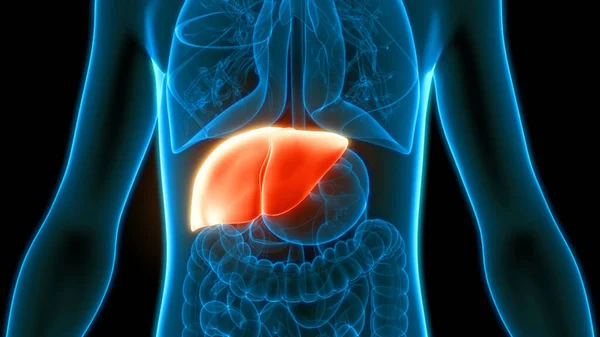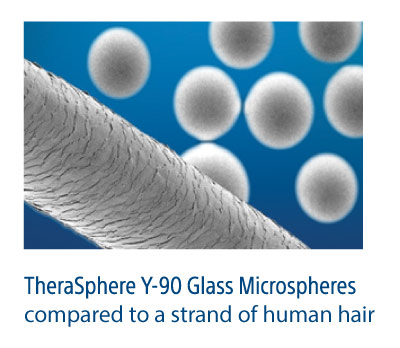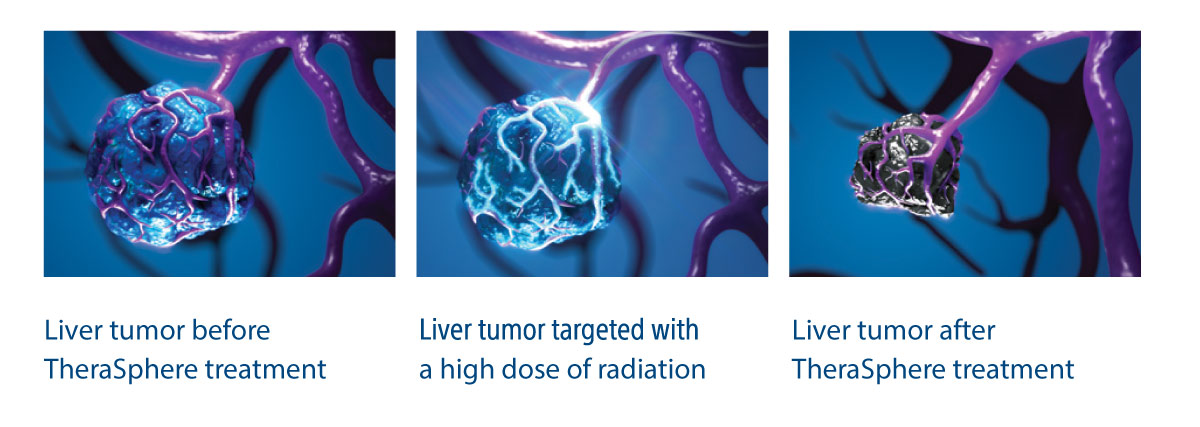Precision Treatment for Liver Tumors
If you or a loved one is dealing with liver tumors, Y-90 Radioembolization offers a targeted and innovative solution. This procedure combines radiation therapy with embolization to deliver precise treatment directly to liver tumors, providing hope and relief.
Treating liver cancer with TheraSphere
The most common type of liver cancer in adults is primary liver cancer, also known as hepatocellular carcinoma (HCC). Primary liver cancer starts in the liver while secondary liver cancer starts elsewhere in the body and spreads to the liver. There is a proven, precise and personalized therapy to treat HCC called TheraSphereTM Y-90 Glass
Microspheres. Learn more about TheraSphere and HCC, including risk factors, symptoms, and what to expect from treatment.’

What to expect from TheraSphere
If you or a loved one is dealing with liver tumors, Y-90 Radioembolization offers a targeted and innovative solution. This procedure combines radiation therapy with embolization to deliver precise treatment directly to liver tumors, providing hope and relief.
There are various options and combinations of options for treating HCC ranging from surgery to targeted drug therapy. Treatment options and prognosis may vary based on the stage of your cancer and overall health. If your doctor chooses TheraSphere to treat your HCC, here’s what to expect.

TheraSphere is made up of millions of tiny glass beads—each thinner than a strand of hair, containing radioactive Yttrium-90 to target your HCC liver tumor. During the procedure, your Interventional Radiologist will make a tiny incision in your upper leg, administering TheraSphere to the liver tumor through a microcatheter. TheraSphere targets the tumor with minimal impact to the surrounding healthy liver. Treatment is typically a single, outpatient procedure that does not require a stay in the hospital. It is often well-tolerated and most patients report minimal side effects. Having the TheraSphere treatment does not preclude you from other treatment options
Y-90 Treatment option for Hepatocellular Carcinoma
There are two types of liver cancer: primary and secondary. Primary liver cancer starts in the liver. Secondary liver cancer starts somewhere else and spreads to the liver. The most common type of liver cancer in adults is hepatocellular carcinoma, also known as HCC.8 It develops when healthy liver cells start to multiply in overdrive in an effort to repair damage. However, this massive effort can sometimes do more harm than good, resulting in genetic mutation.9 In other words, cancer cells are produced instead of healthy cells. Over time, HCC cells form a lump (or multiple lumps) in the liver. This is called a tumor. As it develops, the tumor recruits blood vessels to feed it.9 These blood vessels supply nutrients and oxygen to the tumor, allowing it to grow. If the tumor cells enter the blood stream, the tumor may spread to other parts of the body. This is called metastasis.9 HCC can form many small cancer tumors throughout the liver. This is seen most often in patients with cirrhosis (chronic liver damage). It can also begin as a single tumor that grows and spreads to other parts of the liver.
How Does Y-90 Radioembolization Work?
Y-90 Radioembolization is a highly specialized procedure that focuses on treating liver tumors. Tiny radioactive microspheres are delivered directly into the blood vessels that supply the tumor. These microspheres emit radiation that targets and destroys the cancerous tissue while sparing healthy liver cells.

Precise Targeting
The procedure delivers radiation directly to the tumor, minimizing damage to healthy liver tissue.
Minimally Invasive
Smaller incisions reduce discomfort and promote a quicker recovery.
Symptom Relief
Y-90 Radioembolization often alleviates pain and other symptoms associated with liver tumors.
Improved Quality of Life
Patients may experience an improved quality of life following treatment.
AN OVERVIEW OF TREATMENT OPTIONS
There are various options and combinations of options for treating HCC. You and your medical team will determine the best treatment plan based on your stage of cancer, health, and preferences. Your plan could be a combination of different treatments listed below. Be sure to ask your doctor about the benefits and potential risks associated with your particular treatment plan.
SURGERY
Surgical resection involves removing a portion of the liver and is a common procedure if the HCC is in its early stages. Resection surgery is possible if there is only one tumor that has not grown into blood vessels and there is a reasonable amount of liver function left once the tumor is removed.
Liver Transplant involves removing the whole liver and replacing it with a healthy liver from a donor and may be most effective when the tumor cannot be removed through resection surgery.
A transplant is used to treat patients who are within a set of criteria set by the United Organ Sharing Network.
SYSTEMIC THERAPIES
Targeted drug therapy utilizes drugs that enter the bloodstream and reach nearly all areas of the body, making it a useful therapy against cancers that have spread to distant parts of the body. Immunotherapy involves the use of medicines to help your own immune system find and destroy cancer cells.
Chemotherapy (“chemo”) uses drugs to destroy, shrink, or slow the growth of cancer cells.
MINIMALLY INVASIVE THERAPIES
Ablation uses radio frequency, microwave (heat), or cryotherapy (freezing) to destroy the liver tumor and does not involve open surgery.
Embolization uses special techniques to close off blood flow to the tumor and does not involve open surgery.
Radioembolization is a minimally invasive procedure that combines embolization and radiation therapy to treat liver cancer. Tiny glass or resin beads carrying radiation are placed inside the blood vessels that feed a tumor.
YOU HAVE ANOTHER OPTION IN THE FIGHT AGAINST HCC
THE ONLY MINIMALLY INVASIVE MEDICAL DEVICE APPROVED BY THE FDA FOR THE TREATMENT OF HCC
There is a proven radiation-based therapy available that has been developed to treat liver cancers, such as HCC. It’s called TheraSphere™ Y-90 Glass Microspheres. In clinical trials, it’s proven to shrink tumors and improve patient outcomes.20 It’s been used to treat HCC for more than 20 years, and it may help your fight against cancer.

HOW THERASPHERE™ WORKS
TheraSphere is a treatment consisting of millions of tiny glass beads — each thinner than a strand of hair — containing radioactive Yttrium-90. During the procedure, a doctor called an Interventional Radiologist, will make a tiny incision in your upper leg to deliver TheraSphere to the liver tumor through a microcatheter. Each glass bead delivers a highly concentrated dose of radiation that targets the HCC liver tumor. The radiation destroys the cancer cells within the tumor, with little damage to the surrounding healthy liver.
Treatment with TheraSphere is typically a single outpatient procedure that does not require a stay in the hospital. It is often well-tolerated by most patients with minimal side effects and doesn’t preclude patients from other treatment options.

RADIATION TARGETS THE TUMOR WITH MINIMAL IMPACT TO THE SURROUNDING HEALTHY LIVER

SIDE EFFECTS ARE USUALLY MILD AND MINIMAL
While patients may experience a variety of symptoms after TheraSphere treatment, the typical response is often described as common flu-like symptoms that may last for approximately one week. These symptoms may include mild to moderate fatigue, abdominal discomfort and nausea.
Why Choose VIP SPECIALISTS for Y-90 Radioembolization?
Our team of experienced physicians at VIP SPECIALISTS is dedicated to providing personalized care for patients with liver tumors. We leverage advanced technology and our commitment to patient well-being to deliver the best possible outcomes. If you or a loved one is dealing with liver cancer, contact us today to explore the potential benefits of Y-90 Radioembolization.

